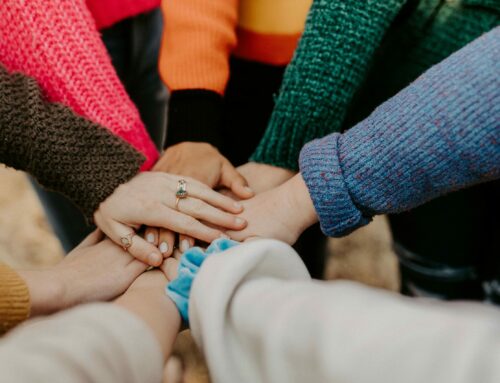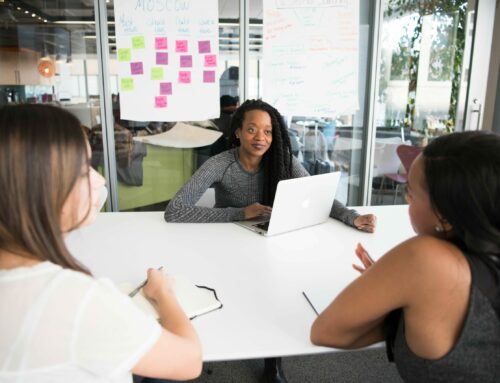In the strange world we’ve been living in for the last couple of months, we’ve talked a lot about concerns for people’s mental health during lockdown. The combined challenges of isolation and home schooling, and stress and anxiety around concerns for our health and financial futures have had the potential to affecting our mental health.
Though alarming, this situation will come to an end. As things slowly begin to return to ‘normal’, one of the things that will help us is to keep maintaining the coping mechanisms we’ve been developing during lockdown. Maintaining a positive outlook will help you to build resilience and self-belief and to deal with difficult situations in the future.
Job hunting post-lockdown
Many people are already gearing up for job hunting as a result of coronavirus. Just last week we heard that some 3,000 team members at Virgin Atlantic had been made redundant.
If you’ve been furloughed or even laid off as a result of the coronavirus pandemic, you might be thinking about preparing for future job interviews. Or the last couple of months may have given you the chance to reflect and decide that it’s time for a career change.
Whatever the reason; job interviews can be stressful situations. And it may be a long time since you’ve had a job interview! So how can you best help yourself to prepare?
I’m going to assume that you have the main skills and experience the recruiter is looking for. What you want to is for your job interview to showcase the qualities that make you stand out from the pack.
It might help by starting to think about the kinds of qualities senior managers are likely to be looking for, and the interview questions recruiters are going to ask. Emotional intelligence has become a real buzzword in recent years, and I believe that it’s going to play an increasingly important role in recruitment, particularly focussing on areas like:
- Showing resilience
Recruiters are likely to be looking for people with the resilience skills to cope with the ‘new normal’. When I’m working with clients to help them build greater reserves of mental fitness in their organisations, resilience is something we talk about a lot.
Employers look for people who deal well with the stresses and strains of the modern working environment, and who have the life skills to bounce back from difficult situations.
- Building positive relationships
One of the things that have kept people going during lockdown has been positive relationships between co-workers. Whether maintaining social distancing measures in the workplace or staying connected whilst remote working, many people have found that the life skills of co-operation and empathy have never been more important.
- Problem-solving
Employers look for the ability to make decisions and solve problems in many different types of roles – but recent events have highlighted how important it is to be able to come up with new ideas and different ways of doing things. Whatever challenges you’ve overcome – from how to work while keeping a safe social distance to how to juggle work and home schooling – that’s a problem-solving life skill you’ve used.
- Dealing with difficult situations
As the last few months have shown us, difficult situations can arise at any time. People in all sorts of jobs have had to deal with anything from changes to their work routine to frustrated customers and even real danger from coronavirus. You will probably have some useful experience you can use to demonstrate how you maintained a positive attitude.
Building your resilience portfolio
I’d like to talk about the habits we can all develop to help us become a more resilient person, with a positive attitude towards problem solving and dealing with difficult situations.
Developing stronger coping mechanisms can help us all right now, and, in the future, help us to get things back on track.
I’ve struggled with high levels of stress and anxiety for years, and here are my 5 favourite habits which have helped me:
- Looking after your physical health
We’re learning more and more about how our physical health and mental health are connected. Getting regular exercise is a good starting point (at whatever level suits your general level of health and fitness – we don’t all have to become marathon runners and just getting outdoors regularly for a brisk 30 minute walk can be hugely helpful). The trick with exercise is to find something you enjoy and build up gradually. There are loads of free online options around at the moment – and if you can get outside, the added benefit of fresh air and the boost to your body’s Vitamin D levels will help.
A healthy diet is also really important. I’m not saying you should completely give up caffeine, chocolate or alcohol (unless you want to), but moderation is key. As is making sure your diet contains plenty of healthy carbs in the shape of vegetables.
And let’s not forget about sleep. We’ll talk relaxation later, but one of the best things you can do for your body is establish a positive, regular sleep pattern. We now know how much lack of sleep can contribute to serious conditions like heart disease. Getting a regular good night’s sleep is essential to both physical and mental health. Aim to go to bed and get up at the same time each day, to get your body used to the pattern. And remember that the blue light emitted from phones and other screens actually tricks our brains into thinking its ‘wake up’ time, so it’s a good idea to switch them off a couple of hours before bedtime.
- Looking after your brain health
Keeping your brain healthy is just as important as looking after your body. Athletes will use a training regime to develop their physical fitness and mental resilience, which includes activity, rest periods and diet, and we can do something similar with our brains.
Feeding our brains on great ‘brain foods’, which include broccoli, pumpkin seeds, dark chocolate and oily fish rich in Omega 3 oils, is a good starting point. Staying well-hydrated is also beneficial to brain health – as it helps maintain a good flow of oxygen and nutrients.
That sleep pattern will also benefit your brain, too.
- Learning to relax
If sleep is a problem (and who hasn’t lain awake in the early hours fretting about things, especially in recent weeks?) you may want to try learning some relaxation techniques.
A bath before bedtime is a good way to prepare your brain for sleep, as is listening to music.
During the day, regular breaks from work (or whatever is making you anxious) are important. Walking the dog, or just walking, gardening and other physical activities are good stress relievers.
Meditating is also gaining more and more recognition for helping to relieve anxiety. If you’re new to meditation, try something like the Headspace app, with guided meditations.
- Taking a tech break
During lockdown, it’s been tempting for some of us to become permanently attached to our phones or screens, bingeing on Netflix, having endless video conference chats or keeping up with social media.
My advice? Stop. At least for a while. We’ve talked about the impact of screens on your brain, and how they affect your sleep. Constant use of tech devices can also affect our ability to concentrate, and increase our anxiety levels.
- Developing new skills
If you’ve spent any time at all online over the last couple of months, you’ve probably been inundated with ads from companies encouraging you to take up a new hobby, learn a language, write a book…
If you are thinking about a post-coronavirus career change, or redundancy looms, it’s a good time to think about what new skills might help you to get there.
It might be simply refreshing and upgrading skills you already have – or there may be something completely new that appeals. Now is a good time, with many companies still offering good deals or even free subscriptions to online tools.
Or there might be something non-work related but interesting.
Turning your attention to something new and absorbing is another good way to switch off from stress and anxiety, and learning a new skill helps to boost self-esteem.
And even if it’s not strictly speaking related to your new job, it could give you an interesting conversation starter when your job interview starts with the question, “So, how did you get on in lockdown?”
My series of Coronavirus Survival Hacks videos was filmed over the first two weeks of coronavirus pandemic lockdown, and I’ve shared some of my top tips for staying positive and dealing with some of the challenges.
One last thing; if you’re struggling with mental health issues, or you’re concerned about any of the people around you, do reach out for help. I’ll be happy to talk to you.






